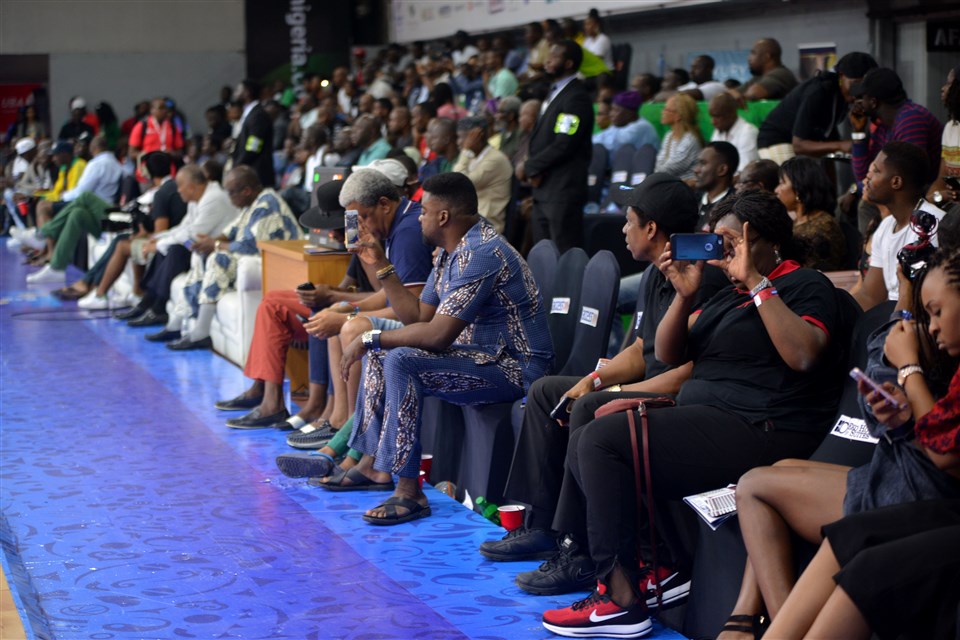
How Patrick Baumann helped transform basketball in Africa
SHEFFIELD (Julio Chitunda's African Message) - FIBA General Secretary Patrick Baumann died last week at the age of 51, the victim of a heart failure in Argentina. However, his legacy will live on for many years to come, especially on the continent of Africa.
A quick look into the history books, and it becomes clear how Baumann (seen above with former Angolan President Dos Santos and former FIBA Africa President Pr Alain Ekra) stubbornly dreamt of transforming basketball in Africa, a place he became a regular visitor to.

From attending major basketball tournaments - as was the case at FIBA AfroBasket 2007 in the Angolan capital of Luanda - making his presence felt at successive Basketball Without Borders (BWB) editions or sharing his immense sports management skills at FIBA Africa Congress, Baumann was always there to witness first-hand and contribute to the development of the game in the second largest continent.
Throughout his 15-year term as FIBA Secretary-General, Baumann left his mark on the game of basketball across the globe, but it was in Africa where his determination, enthusiasm, and belief transformed the game of basketball for good.
Always happy, encouraging, loving and filled with positive energy! Well if you know about international basketball, you know about FIBA Secretary General Patrick Baumann. #ResteasyChamp 🙏🏾 pic.twitter.com/pcn8RTi7Y3
— Bismack Biyombo (@bismackbiyombo) October 14, 2018
Even knowing and acknowledging the difficulties and challenges that basketball faces on the continent, Baumann - on a number of occasions - reminded the need to make basketball accessible for all.
When FIBA announced the implementation of its new competition system in 2014, which became effective in November 2017, Africa emerged as some of the biggest winners.
After all, it was this innovative model - which Baumann dedicated a great part of his time to - that provided local fans with a chance of following and watching their national teams more regularly.
 A view of the Indoor Stadium in Lagos, where Nigeria hosted World Cup Qualifiers games
A view of the Indoor Stadium in Lagos, where Nigeria hosted World Cup Qualifiers games
- Nigeria, a major player on the African continental scene, had never played a meaningful tournament in front of their home fans until last February when they hosted the second leg of Group B of the FIBA Basketball World Cup 2019 African Qualifiers (WCQ).
- Prior to hosting the first leg of Group C of WCQ, Angolan fans had last seen their national team play on home soil 10 years earlier.
- Mozambique fans had a chance of watching their heroes for the first time in more than a decade last February when they played as hosts of the first leg of Group D.
- Under Baumann's reign, Tunisia hosted the FIBA Women's U19 Basketball World Cup in 2005 - the first of its kind in Africa.
- Egypt followed suit in 2017, hosting the FIBA U19 Basketball World Cup.
 The FIBA U19 Basketball World Cup 2017 in Cairo
The FIBA U19 Basketball World Cup 2017 in Cairo
But, the most significant change of all - and Baumann was elated and praised for his effort - came with an increased number of participating teams at next year's FIBA Basketball World in China. The continent of Africa will be represented, for the first time in the history of the competition, by five countries rather than the usual three.
With Baumann's death, local federations, officials, athletes and members of the public took to social media to pay their respects to a man who believed in the development of talent and future of African basketball until his last days.
Le Monde du basket en Deuil.
— BASKET-BALL SÉNÉGAL (@FSBBOFFICIEL) October 14, 2018
C’est avec une immense tristesse que nous avons appris le décès de Patrick Baumann, Secrétaire Général de la FIBA.#Baumann #kebetu #FIBA pic.twitter.com/EfYrByCzmu
The board of the @nbbfonline has expressed shock over the sudden demise of @FIBA Secretary General, Patrick Baumann which sad event occurred on Saturday at the on-going Youth Olympic Games.
— #NBBF (@nbbfonline) October 14, 2018
The President, Musa Kida said his death has left a huge vacuum difficult to fill.
RIP pic.twitter.com/g34QOF8bS5
🔴 [Communiqué]
— FECABASKET (@FECABASKET) October 15, 2018
Lettre de condoléance de la Fecabasket, suite au décès de Monsieur Patrick BAUMANN, Secrétaire Général de @FIBA.
https://t.co/4vlPzSFYNr pic.twitter.com/Sz6cYITaJ7
To say that Baumann's death was shocking would be an understatement, at least for me, as I had a chance of meeting this charismatic, polite and friendly gentleman on a few occasions at the House of Basketball in Switzerland and all over the world during my time covering the sport we love.
Thank you, Patrick.
Julio Chitunda
FIBA
FIBA's columnists write on a wide range of topics relating to basketball that are of interest to them. The opinions they express are their own and in no way reflect those of FIBA.
FIBA takes no responsibility and gives no guarantees, warranties or representations, implied or otherwise, for the content or accuracy of the content and opinion expressed in the above article.

















